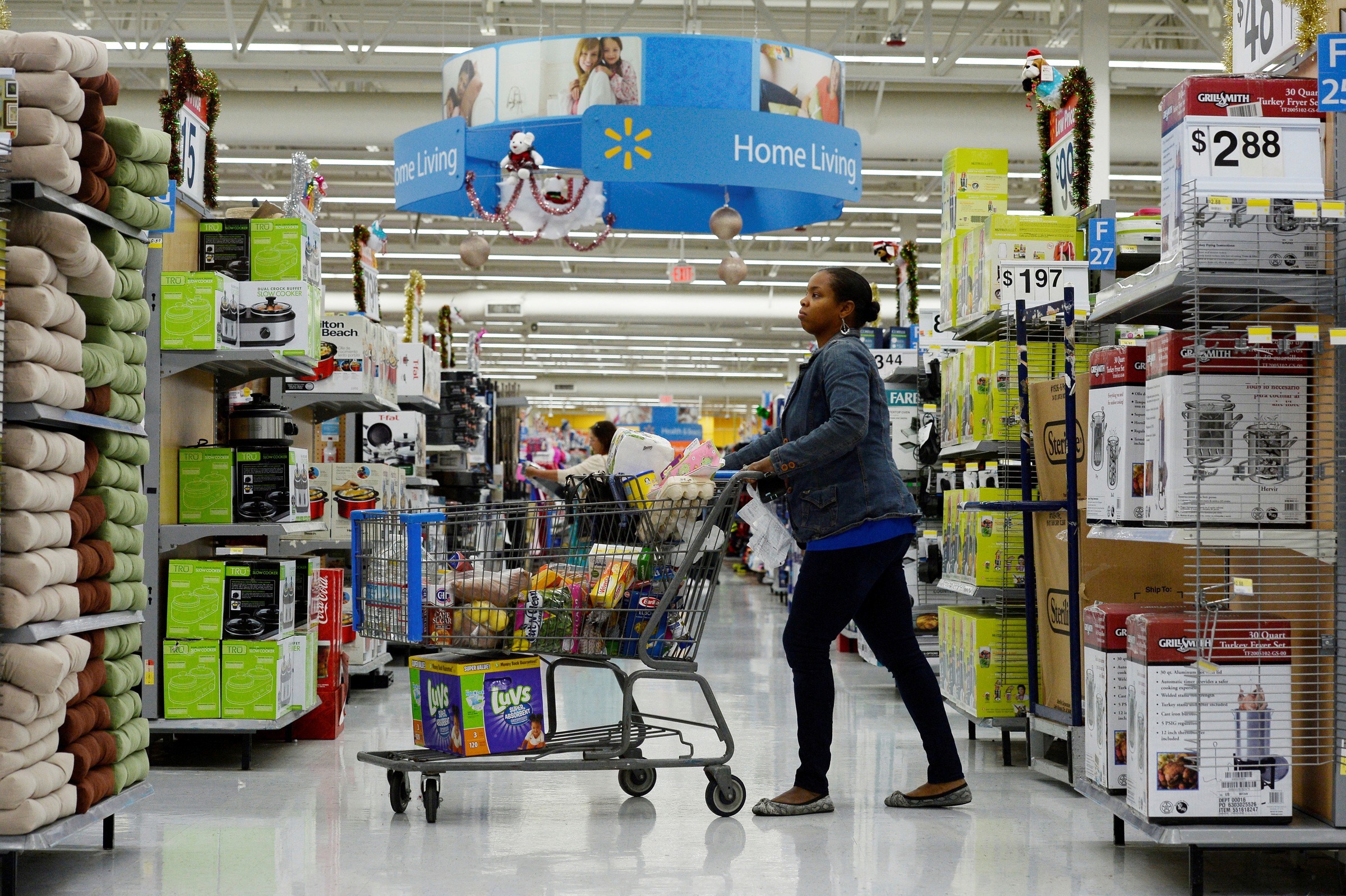At a Warwick economics event on 23/9, Federal Reserve (Fed) Chair Jerome Powell acknowledged the dual challenge of rising inflation and a weakening labor market. He believes current interest rates are appropriate to address both risks, suggesting no need for aggressive rate cuts.
"The risks to employment are increasing, changing the current situation. However, our policy stance remains tight, positioning us well to respond to potential economic developments," he explained.
Powell considers the view that tariff-driven inflation is a one-time event a "reasonable baseline scenario." However, he emphasized the "high level of uncertainty" and the Fed's need to "ensure this price increase doesn't become persistent inflation."
"We can't ignore that objective. And that's why we need to be cautious in adjusting interest rates," Powell stated in the post-speech discussion.
 |
Consumers shop at a Walmart supermarket in Los Angeles. Photo: Reuters |
Consumers shop at a Walmart supermarket in Los Angeles. Photo: Reuters
These comments come amid heated debate about further rate cuts, just a week after the Fed's first rate reduction this year.
Two Fed officials recently proposed aggressive rate cuts to protect the US labor market, while others urged caution. Investors anticipate two more adjustments this year, totaling 0.5%, bringing the benchmark rate to its lowest point since 10/2022.
Powell affirmed that the US is not facing a crisis requiring drastic rate cuts.
However, the Fed remains in a difficult position. President Donald Trump's tariffs are pushing up prices while job growth slows, pressuring both pillars of the Fed's dual mandate: price stability and maximum employment. "This means there's no risk-free path," Powell said.
Since last week's decision, two members of the Fed's Board of Governors have publicly expressed concern about the labor market and downplayed the impact of tariffs on prices.
Vice Chair for Supervision Michelle Bowman stated at a 23/9 event in Asheville, North Carolina: "Recent data suggests a more fragile labor market and a small, short-term impact of tariffs on inflation." She warned that if this persists, the Fed "will need to adjust policy more quickly and aggressively."
According to the US Department of Labor, job growth has slowed in recent months. Job seekers now outnumber openings, despite a low 4.3% unemployment rate.
Fed Governor Stephen Miran, one of Trump's top economic advisers, believes economists are underestimating the pressure interest rates exert on the labor market.
"I think current policy is too tight, posing a significant threat to the Fed's mandate to promote employment," Miran said. He suggests rates should be "nearly 2 percentage points lower," equivalent to eight 0.25% cuts or four 0.5% cuts. However, the Fed typically reserves large cuts for periods of economic distress.
Meanwhile, some Fed officials disagree. In a CNBC interview, Chicago Fed President Austan Goolsbee noted that inflation remains a concern, not having returned to the 2% target.
"Interest rates only need to gradually decrease to come down quite a bit in the coming period. However, with inflation above target for 4 years and trending upward, I think we need to be cautious," he explained.
The Personal Consumption Expenditures (PCE) price index, the Fed's preferred inflation gauge, rose 2.6% in July year-over-year. The US Department of Commerce is expected to release the August PCE later this week.
Atlanta Fed President Raphael Bostic also considers the "risk to price stability still the greatest." "From surveys and feedback, we see a strong likelihood of further price increases. I'm worried about that," he told the Wall Street Journal.
Ha Thu (according to CNN, CNBC, WSJ)












